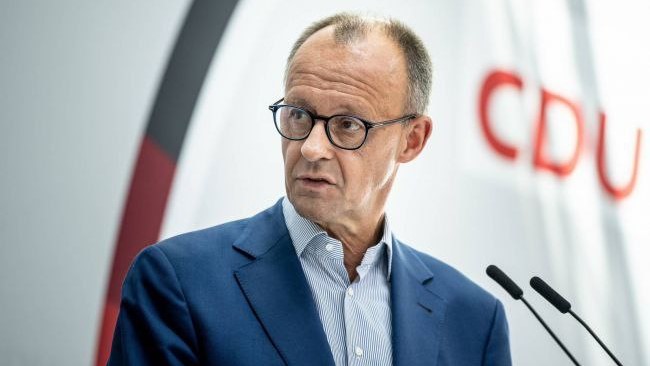Thorsten Frei, chief of staff to German Chancellor Friedrich Merz, says Europe must consider harsher sanctions—including energy bans and asset seizures—to pressure Moscow.
Others are reading now
As the war in Ukraine drags on with no end in sight, Berlin is signaling a shift in tone. With peace talks stalled and Russian attacks intensifying, Germany’s new leadership says the West must be willing to take far bolder steps—including ones that may hurt itself—to meaningfully impact Vladimir Putin’s war machine.
Sanctions Need More Bite, Says Merz’s Right Hand
Thorsten Frei, the influential chief of staff to newly elected German Chancellor Friedrich Merz, said the EU must leave its “comfort zone” and consider sanctions that truly bite.
In an interview, Frei suggested targeting Russian gas and uranium imports, as well as moving to confiscate frozen Russian state assets.
“These are exactly the types of measures that would really hurt Russia,” Frei said. “And thus achieve the impact we truly want through sanctions.”
Also read
His comments come just as the EU and UK unveiled a fresh round of sanctions aimed at Russia’s so-called “shadow fleet” and financial facilitators. But Frei insists more aggressive action is needed—regardless of potential blowback for other EU states, as reported by Hotnews.ro.
Shift in Tone from Berlin
Chancellor Merz, who took office earlier this month, has already voiced support for seizing frozen Russian assets.
Frei’s remarks go further, indicating a willingness to push for measures previously seen as politically or legally fraught.
Putin understands only clear messages,” Frei said. “He’s stalling for time, hoping to reach his war goals by force.
He also accused Moscow of ramping up attacks even as peace talks with Ukraine resumed last week in Istanbul. These continued assaults, Frei said, reveal Russia’s lack of interest in any genuine resolution.
Military Support Could Grow
Frei didn’t rule out a boost in military support for Ukraine, saying the current €7 billion allocation in Germany’s draft budget might not be enough.
The country is already among Europe’s top contributors, but Merz’s government appears open to expanding both sanctions and aid.
As the rhetoric hardens in Berlin, European unity on next steps remains crucial. But Frei’s message is clear: incrementalism won’t work anymore. Only decisive action, even at domestic cost, will shift the dynamics on the battlefield—and at the negotiating table.


